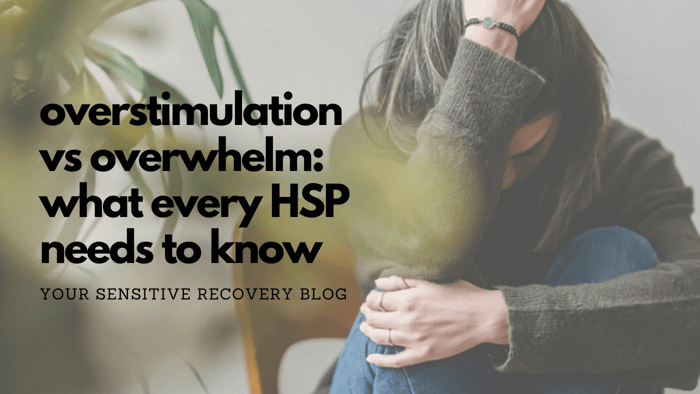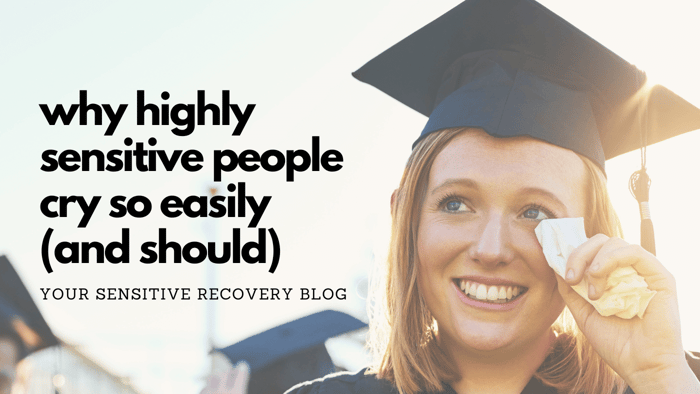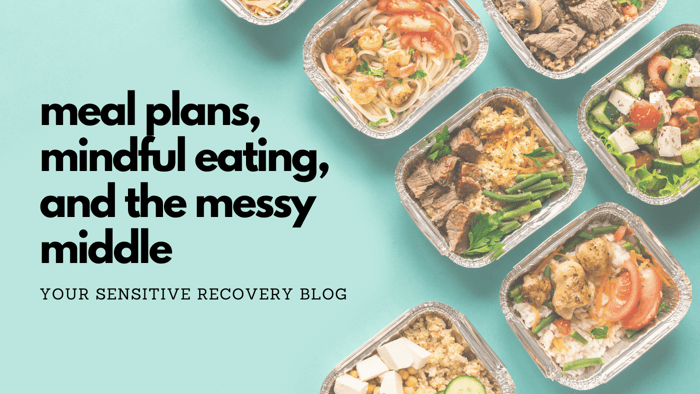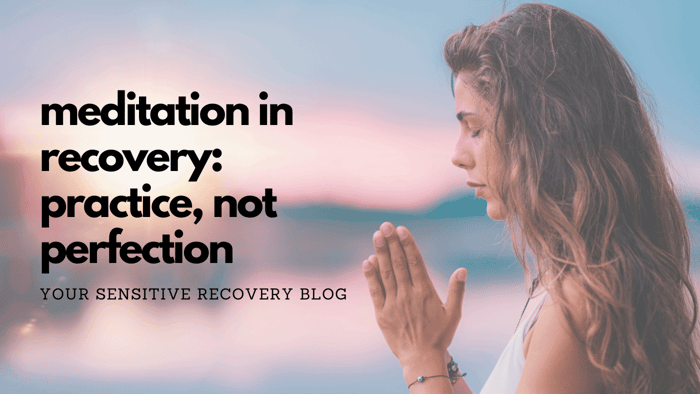We've all had moments where we've felt like everything was JUST TOO MUCH. For a Highly Sensitive Person (HSP), these moments might seem to come more often. Maybe you suddenly needed to leave a crowded space, shut your laptop mid-task, or burst into tears over spilled milk, as they say. It's easy to label times like this as "overwhelm" - but often, what's really happening is overstimulation.
Though the two experiences are closely related, there’s a subtle but important difference between being overstimulated and being overwhelmed. Understanding this difference can be a game-changer for everything from your self-care to your relationships, especially if you’ve spent years thinking you're just not "good" at coping.
In this post, I’ll walk you through what distinguishes overstimulation from overwhelm in the HSP nervous system, the connection between the two, and practical ways to cope with both.
"I know you can be overwhelmed, and you can be underwhelmed...but can you ever just be whelmed?" - 10 Things I Hate About YouDefining the Terms
As HSPs, it's not too hard for us to feel a bit out of sorts when it comes to living in this chaotic world. However, overstimulation and overwhelm are two distinct experiences, and learning to tell them apart can help you respond in ways that will better support your nervous system.
Overstimulation
Usually sensory-based and stemming from external circumstances. Essentially, overstimulation is the experience of our senses having taken in more than our system can process. You might have used the term "sensory overload" to describe it. Common triggers include busy locations like airports, obnoxiously bright lights or loud noises, hurried movement and feeling rushed, too many people talking at once, etc. For HSPs, who take in more detail and process it more deeply, overstimulation can build faster than it does for others.
Overwhelm
Usually emotional/thought-based and stemming from internal or a combination of internal and external circumstances. Being overwhelmed is more about exceeding your emotional or mental bandwidth. It’s what happens when you're juggling pressure, responsibilities, and expectations - especially when they all feel urgent or impossible to handle. Common triggers include: too many options, last-minute changes, looming deadlines, multitasking, arguments, being put on the spot, etc. Overwhelm can happen in any environment, even calm ones.
Name It to Tame It: Which Are You Dealing With?
Different problems have different solutions. That's why it's so important to recognize which experience you're having, so that you can use the right tools to cope.
What overstimulation can look like:
- Irritability or agitation
- Strong urge to escape the current situation or to isolate
- Mind suddenly going blank
- Feeling hot and flushed
- Tense muscles, especially around your jaw, neck, and shoulders
- A desire to cover your ears or eyes
What overwhelm can look like:
- Racing or looping thoughts
- Feeling the pressure of time
- Sudden and sometimes intense low mood or hopelessness
- Small or routine tasks feel impossible or paralyzing
- Feeling teary, irritable, panicky, or completely numb
- Negative thoughts about yourself and your worth
Here's a simple question to ask yourself that will help you identify what you're dealing with:
"If everything got quiet and calm for a few minutes, would that help me? Would I feel any better?"If the answer is yes, you’re likely overstimulated. If no, you're probably feeling overwhelmed. If you're unsure, you just might have both experiences going on! Yep, the two states are closely connected, and overstimulation can play a role in tipping you into overwhelm.
When your nervous system is bombarded by too much sensory input, your internal resources start to dwindle. That’s when emotional regulation gets harder, small decisions start to feel huge, and you may find yourself crying, snapping at loved ones, or shutting down.
Learning to spot what's happening doesn’t just help you cope - it helps you show up for yourself with more understanding and compassion. Remember, both overstimulation and overwhelm are universal experiences, even for non-HSPs.
How to Cope
Once you’ve named whether you’re overstimulated or overwhelmed (or both), you can meet yourself with tools that actually help, rather than trying to push through or shut down.
😵💫 If You’re Overstimulated
When your nervous system is overloaded in this way, the goal is to reduce or change sensory input and restore calm. Think of it like turning the volume down on the world so your system can reset. Try these tips:
- Change your environment: Step outside. Go into a quiet room. Dim the lights. Get off your screen.
- Sooth your senses: Use noise-cancelling headphones. Get under a weighted blanket. Inhale some calming aromas. Turn on some nature sounds.
- Ground your body: Incorporate some gentle movement like stretching. Breathe deeply and slowly with a hand over your heart. Name the different colors you see around you.
The key here is less. Less input, less noise, less pressure.
😭 If You’re Overwhelmed
When you’re emotionally or mentally maxed out, your nervous system needs reassurance, clarity, and compassion. Instead of tuning out, you may need to tune in, gently. Try these tips:
- Name your feelings: Saying, for example, “I feel overwhelmed and afraid I’m failing,” can actually help reduce the intensity of the emotions. Check out this post for an effective distancing tool.
- Do a brain dump: Write down everything swirling in your head without stopping to re-read or edit. Then step away from it.
- Mind your meaning-making: Be careful to not make statements about what overwhelm means about you. Don't add a negative story on top of an already difficult moment.
- Prioritize the next step: Ask, “What’s the next small thing I can do?” Maybe it’s having a snack or a glass of water, texting a friend, taking a nap, or paying one bill.
You don’t need to handle everything perfectly. You just need to notice what you’re needing, and offer yourself something small and soothing in return.
A Gentle Reminder
If you’ve ever felt like you’re “too sensitive” because the world is often overstimulating or overwhelming, please know this: there’s nothing wrong with you. You’re simply processing more information. And that’s actually pretty cool, even if it doesn’t always feel like it.
Think back to the last time you felt like everything was “too much.” Was it more sensory, or more emotional and thought-based? Or both? The more you practice noticing the difference, the easier it becomes to respond with the kind of care that actually works.
If you’d like more tools like these, gentle, and HSP-informed, be sure to explore more of my blog or sign up for one of my pay-as-you-can courses.
Peace and calm to you, sweet friend 💕
✨ Josie Munroe, LMFT is a licensed therapist and owner of JosieMunroe.com and Your Sensitive Recovery. As a recovered clinician and Highly Sensitive Person, she loves supporting others on their journeys to form new, empowered relationships with food, their bodies, and their sensitivity. Join the newsletter for a weekly boost of hope and inspiration. You deserve a recovery that works for you! ✨





